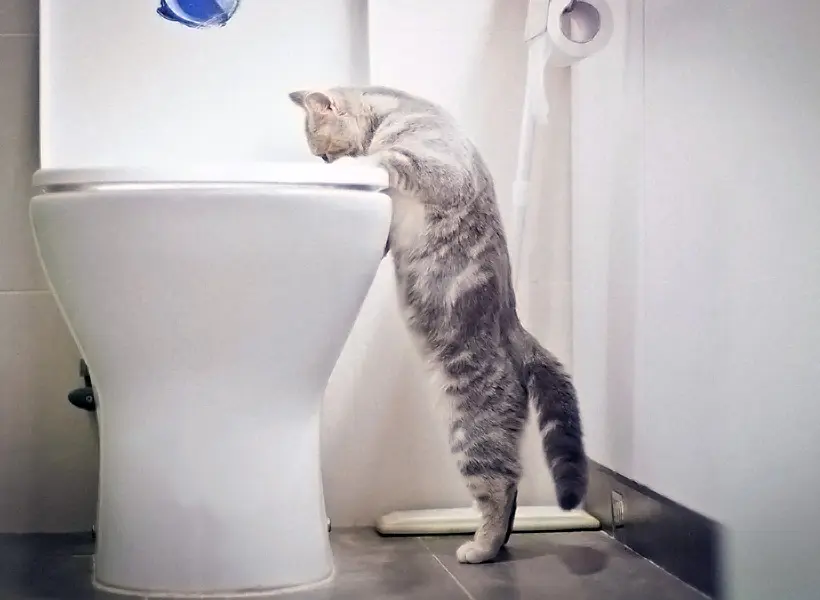The Risks of Disposing Cat Poop in Your Toilet - Precautionary Steps
Book Your InstallationThe publisher is making a few good points on Can You Flush Cat Poop Down The Toilet? in general in the article in the next paragraphs.

Introduction
As pet cat owners, it's important to bear in mind exactly how we deal with our feline close friends' waste. While it may appear convenient to purge cat poop down the bathroom, this practice can have destructive effects for both the setting and human wellness.
Environmental Impact
Purging pet cat poop introduces hazardous pathogens and bloodsuckers right into the supply of water, positioning a considerable risk to aquatic environments. These contaminants can adversely affect aquatic life and compromise water quality.
Health Risks
Along with environmental worries, purging feline waste can also posture wellness threats to humans. Feline feces might contain Toxoplasma gondii, a parasite that can trigger toxoplasmosis-- a possibly extreme illness, particularly for expecting ladies and people with damaged immune systems.
Alternatives to Flushing
Fortunately, there are much safer and extra accountable means to throw away pet cat poop. Think about the complying with options:
1. Scoop and Dispose in Trash
One of the most common method of dealing with cat poop is to scoop it right into a biodegradable bag and throw it in the trash. Make sure to make use of a specialized clutter scoop and throw away the waste immediately.
2. Use Biodegradable Litter
Choose naturally degradable pet cat trash made from products such as corn or wheat. These clutters are eco-friendly and can be securely taken care of in the garbage.
3. Bury in the Yard
If you have a lawn, think about burying feline waste in a designated area away from vegetable gardens and water resources. Make sure to dig deep sufficient to avoid contamination of groundwater.
4. Set Up a Pet Waste Disposal System
Buy a pet waste disposal system especially designed for cat waste. These systems use enzymes to break down the waste, minimizing odor and environmental effect.
Conclusion
Responsible animal ownership extends past supplying food and shelter-- it also involves proper waste management. By avoiding flushing pet cat poop down the commode and choosing alternative disposal techniques, we can reduce our ecological impact and secure human health.
Why Can’t I Flush Cat Poop?
It Spreads a Parasite
Cats are frequently infected with a parasite called toxoplasma gondii. The parasite causes an infection called toxoplasmosis. It is usually harmless to cats. The parasite only uses cat poop as a host for its eggs. Otherwise, the cat’s immune system usually keeps the infection at low enough levels to maintain its own health. But it does not stop the develop of eggs. These eggs are tiny and surprisingly tough. They may survive for a year before they begin to grow. But that’s the problem.
Our wastewater system is not designed to deal with toxoplasmosis eggs. Instead, most eggs will flush from your toilet into sewers and wastewater management plants. After the sewage is treated for many other harmful things in it, it is typically released into local rivers, lakes, or oceans. Here, the toxoplasmosis eggs can find new hosts, including starfish, crabs, otters, and many other wildlife. For many, this is a significant risk to their health. Toxoplasmosis can also end up infecting water sources that are important for agriculture, which means our deer, pigs, and sheep can get infected too.
Is There Risk to Humans?
There can be a risk to human life from flushing cat poop down the toilet. If you do so, the parasites from your cat’s poop can end up in shellfish, game animals, or livestock. If this meat is then served raw or undercooked, the people who eat it can get sick.
In fact, according to the CDC, 40 million people in the United States are infected with toxoplasma gondii. They get it from exposure to infected seafood, or from some kind of cat poop contamination, like drinking from a stream that is contaminated or touching anything that has come into contact with cat poop. That includes just cleaning a cat litter box.
Most people who get infected with these parasites will not develop any symptoms. However, for pregnant women or for those with compromised immune systems, the parasite can cause severe health problems.
How to Handle Cat Poop
The best way to handle cat poop is actually to clean the box more often. The eggs that the parasite sheds will not become active until one to five days after the cat poops. That means that if you clean daily, you’re much less likely to come into direct contact with infectious eggs.
That said, always dispose of cat poop in the garbage and not down the toilet. Wash your hands before and after you clean the litter box, and bring the bag of poop right outside to your garbage bins.
https://trenchlesssolutionsusa.com/why-cant-i-flush-cat-poop/

I discovered that write up about Can You Flush Cat Poop Down The Toilet? when doing a search on the internet. So long as you appreciated our post kindly don't forget to share it. Thanks so much for going through it.
Call Us Now